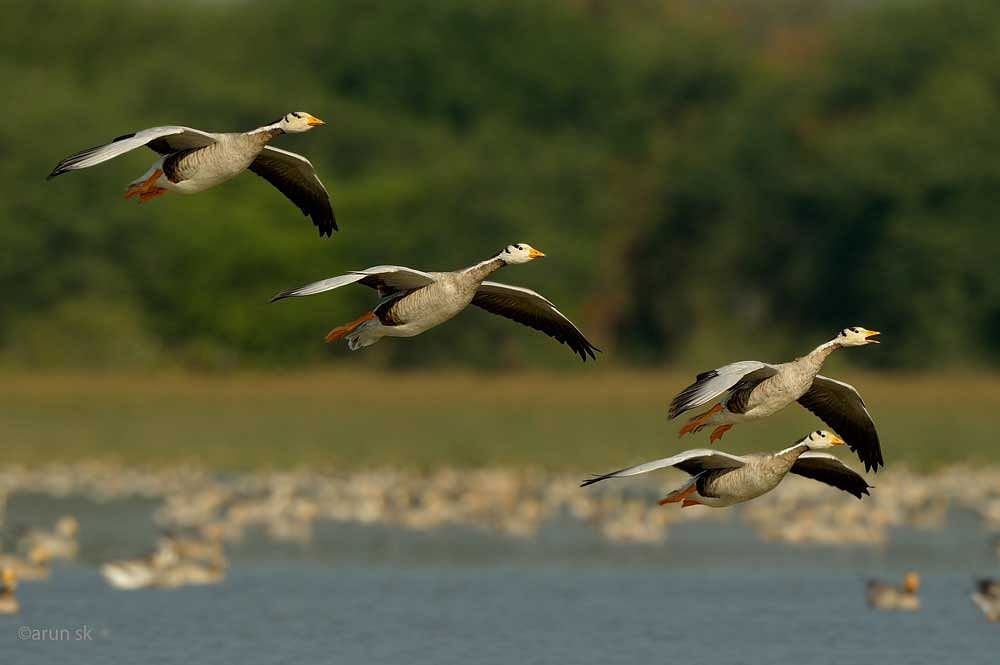
Medical reports have confirmed that pesticides used by green-gram farmers around the famous Magadi lake in Shirahatti taluk of Gadag district has resulted in the death of at least four bar-headed geese, a migratory bird from Mongolia.
While the officials claim that only four healthy bar-headed geese died in the last 15 days, sources in the department and the villagers claim that more than 30 bar-headed geese have died due to pesticides.
Three years ago, more than 250 bar-headed goose had died at the lake due to the same reason. Environmentalists fear that this year too the number of bar-headed geese dying due to consumption of food containing traces of pesticides may raise if preventive measures are not taken at the earliest.
Every year, more than 5,000 bar-headed geese make Magadi lake their winter breeding ground from November end to last week of February or first week of March. This year, more than 8,000 birds have landed at the lake. These birds make a long journey from Mongolia to beat the extreme cold conditions there. The birds can be traced across India during these months, while Magadi lake is said to have one of the largest congregations of this species during winter.
Sources in the Forest department claim that every year 60-70 birds die at the Magadi lake due to ‘food poisoning’.
The farmers have been spraying pesticides to prevent their green gram crop, which flowers in this season, from being destroyed by insects. However, the bar-headed geese, which feed on the leaf buds of green gram and also the insects, are dying due to the pesticides sprayed on the crop.
“The postmortem report given by veterinarians has confirmed the death of four eight-month-old birds due to pesticides,” said Shirahatti range forest officer Satish H Poojar.
“Every year, the department conducts awareness programmes for farmers against use of harmful chemicals. But, we have not achieved much success in this regard,” he said and added that they can’t even blame the farmers as it is a matter of their living.
However, it is the farmers who have to ensure that Magadi lake becomes a safe haven for these birds, and they have taken several steps to prevent poaching of these birds, unlike in other places,” Poojar said.
The Forest Department has also sent the water samples of the lake to laboratories to ensure that the water is not polluted due to the presence of harmful nematoda or protozoan worms.